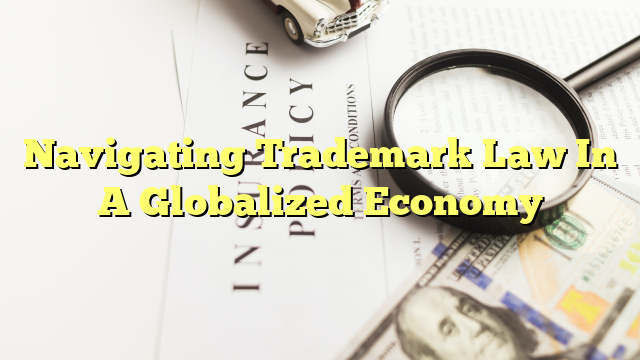Table of Contents
- The Significance of Trademarks on a Global Business Market
- Do Trademark Laws Vary By Country?
- How Are Trademarks Protected at International Level?
- Are There International Trademark Laws?
The Significance of Trademarks on a Global Business Market
As the global economy has become more and more integrated, the importance of protecting trademarks has grown exponentially. A trademark is a word, phrase, logo, or design that is used to identify a particular product or service. A trademark is usually associated with a particular company or brand, and gives exclusive rights to the owner to prevent others from using it without permission. This is especially important in a globalized economy, where companies compete in multiple markets and need to protect their brand identity.
Trademarks help consumers identify and differentiate products and services, and also act as a source of reputation for companies and brands. Consumers can trust a particular trademark, and know that it stands for a certain level of quality. This is especially true on the global market, where a company’s reputation is essential for ensuring customer loyalty. Companies use trademarks to communicate their reputation for quality and service, and to differentiate their products and services from those of their competitors.
Trademarks are also an important tool for companies as they build relationships with their customers. From logos to brand names, trademarks are used to create an emotional connection between customers and companies. This is especially important in the global market, where customers may not be able to visit a physical store or meet with a representative of a company before buying a product. Companies use trademarks to create a sense of familiarity and trust with customers, which is essential for providing a successful customer experience.
Do Trademark Laws Vary By Country?
The answer to this question is yes; trademark laws vary by country. Each country has its own trademark laws, which are designed to protect brands from infringement and counterfeiting. These laws are different from country to country and may include different requirements, procedures, and remedies. Companies that operate in multiple countries need to be aware of the various trademark laws in each country, and how they may affect their operations.
When a company operates in multiple countries, it is important to register its trademarks in each country. This helps to ensure that the company has exclusive rights to the trademark, and that others cannot use it without permission. It also helps to protect the company from potential infringement or counterfeiting. In some cases, it may even be necessary to register a trademark in multiple countries, depending on the scope of the company’s operations.
How Are Trademarks Protected at International Level?
Trademarks can be protected at international level through several different mechanisms. One of the most common is the Madrid System, which is an international system for registering trademarks. The Madrid System allows a company to register a trademark in multiple countries by filing a single application. The Madrid System is administered by the World Intellectual Property Organization (WIPO), and is widely used by companies operating in multiple countries.
In addition to the Madrid System, there are other international mechanisms that can be used to protect trademarks. These include bilateral and multilateral treaties, such as the Paris Convention, which provides protection for trademarks in multiple countries. Companies may also enter into agreements with other companies, such as licensing agreements, which can help protect trademarks in multiple countries.
Are There International Trademark Laws?
Yes, there are international trademark laws. These laws are designed to protect trademarks on an international level, and ensure that companies have exclusive rights to their trademarks. The most important international trademark law is the Paris Convention, which is a multilateral treaty that provides protection for trademarks in multiple countries. The Madrid System is also an important international trademark law, as it allows companies to register their trademarks in multiple countries by filing a single application.
International trademark laws are essential for protecting companies’ trademarks in multiple countries. Companies that operate in multiple countries need


The global economy offers unique trademark opportunities that require careful navigation of the law.